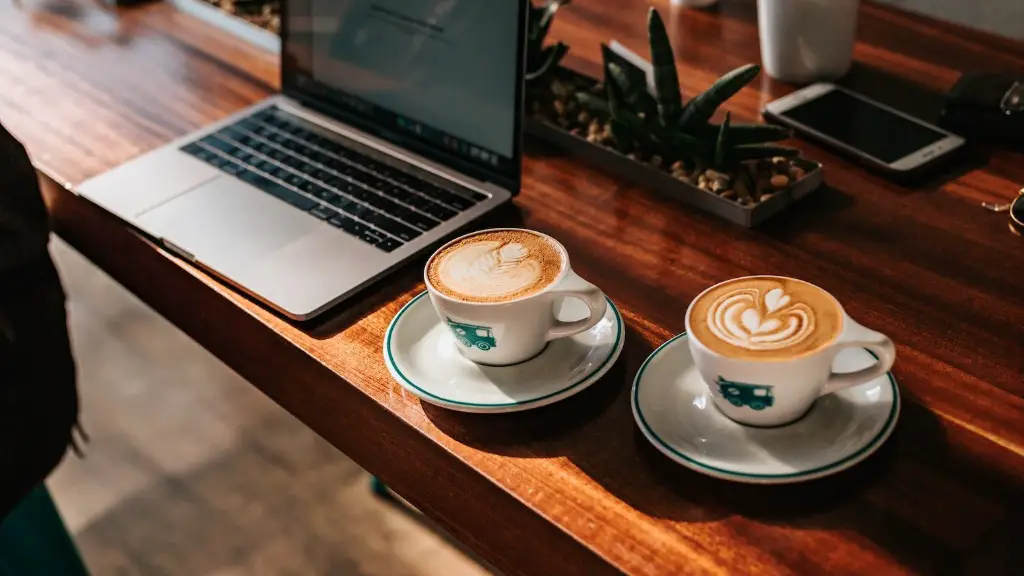Coffee has become one of today’s most popular beverages. Whether it’s consumed in the morning, afternoon, or evening, coffee has a range of health benefits, including lower risk of disease, improved concentration and alertness, and increased energy levels. So, is it okay to drink coffee in the afternoon?
The answer is yes and no. According to sleep experts, having any caffeine after 2PM can disrupt normal sleep patterns, resulting in difficulty falling asleep or staying asleep. Caffeine is a stimulant and can remain in your system for up to 12 hours, so drinking a cup of coffee in the afternoon can make it harder to fall asleep and get into a deep, restful sleep.
However, for those who are used to drinking coffee later in the day, there are a few steps you can take to avoid the negative effects on your sleep. Firstly, you should limit the amount of coffee you drink. If you can, refrain from drinking coffee in the early afternoon or late evening. Secondly, you should be mindful of the type of coffee you are drinking. Coffee with higher amounts of caffeine will have greater effects on the body and may be more likely to interfere with your sleep.
Finally, it is important to keep an eye on the timing of your coffee drinking. If you’re drinking a cup of coffee later in the day, make sure you are drinking it at least four to six hours before you plan to go to bed.
In addition to the potential impact of coffee on sleep, there are other considerations you need to take into account. Caffeine can cause an increase in heart rate, anxiety, and jitteriness, so if you already suffer from these conditions, it may be best to avoid coffee after 2PM. Furthermore, coffee is acidic and can cause heartburn and indigestion. So if you are prone to these conditions, coffee in the afternoon may not be the best choice.
Caffeine Content in Coffee
When it comes to drinking coffee, knowing the caffeine content is important. Caffeine amounts vary based on the type of coffee bean and the strength of the brew. On average, a standard 8oz cup of drip-brewed coffee contains between 95 to 200mg of caffeine, while an espresso will contain around 63mg of caffeine.
Some specialty coffees can contain up to 700mg of caffeine per 16 oz cup, 11 times more than a regular cup of drip-brewed coffee. So if you’re drinking coffee in the afternoon, it’s important to know the caffeine content of the coffee you’re consuming. Alcoholic beverages and energy drinks can also contain high amounts of caffeine, so it is important to be mindful of their effects on your body.
Alternatives to Caffeine for Afternoon Energy
If you’re looking for an energy boost in the afternoon without the negative effects of caffeine, there are a number of alternatives. Green tea, for example, contains lower amounts of caffeine than coffee, while providing a host of health benefits. Alternatively, you could take a nap. A 15 to 20-minute nap can boost alertness and concentration, while reducing fatigue. If you’re feeling particularly tired, a 45-minute nap can also help boost creativity and long-term memory.
Exercise is another great option to increase energy levels in the afternoon. Studies show that exercise can help reduce fatigue and increase alertness. In addition, regular physical activity can also improve overall physical health. So if you’re looking for an energy boost in the afternoon, try to get in some physical activity.
Sleep Habits
If you’re drinking coffee in the afternoon, it’s important to have good sleep habits. Make sure you’re getting at least seven to nine hours of sleep each night, which is the recommended amount for adults. Also, try to go to bed and wake up around the same time each day, as this will help to regulate your body’s sleep schedule.
If you are having trouble sleeping, there are a few things you can do to make it easier. Avoid consuming caffeine before bed, as this can affect your sleep quality. Also, avoid using screens, including smartphones and tablets, before bed, as the blue light emitted can disrupt your sleep. Finally, create a calming environment in your bedroom, such as dim lighting, comfortable temperatures, and comfortable bedding. By following these steps, you can ensure your body is getting the sleep it needs.
Benefit of Drinking Coffee
Despite the potential drawbacks of drinking coffee in the afternoon, there are still some benefits to be gained. Coffee is a great source of antioxidants, which can help reduce inflammation and protect cells from damage. Also, coffee can provide a mental boost, which can help you stay focused and productive throughout the day. Finally, coffee can help increase cardiovascular health, reduce the risk of type 2 diabetes, and improve mood.
Overall, drinking coffee in the afternoon is a personal preference, and it is important to consider the potential effects on your health and sleep. If you decide to have a cup of coffee later in the day, make sure you go for a lighter blend, limit your intake to once or twice a day, and avoid drinking it after 2PM.
A Word From Experts
Experts agree that drinking coffee in the afternoon is not advisable because of its potential to disrupt normal sleep patterns. However, there are a few steps that can be taken to minimize the negative effects of drinking coffee, such as limiting its intake, avoiding certain types of coffee, and paying attention to the timing of your coffee drinking. Furthermore, there are alternatives to caffeine that can provide an energy boost in the afternoon.
If you decide to have a cup of coffee in the afternoon, it is important to pay attention to the effects it will have on you, including its potential to interfere with your sleep. However, if you take the necessary precautions, you can still enjoy a cup of coffee without disrupting your sleep.
Impact of Caffeine on Performance
Caffeine can affect performance, both positively and negatively. On one hand, caffeine can improve concentration and alertness, allowing you to workout at a higher level of intensity and focus. On the other hand, too much caffeine can cause anxiety and jitteriness, making it difficult to perform optimally. Therefore, it is important to monitor your caffeine intake and adjust it according to your individual needs.
Consuming caffeine before a workout can also boost energy levels, allowing you to exercise for longer. Caffeine can also help reduce fatigue and pain, making it easier to push through tough workouts. Conversely, if you consume too much caffeine, it can cause dehydration and increased heart rate, so it is important to regulate your intake accordingly.
Additionally, it may be best to avoid caffeine before bed. Caffeine can have stimulant effects and can interfere with normal sleep patterns, so if you consume coffee in the late afternoon or evening, it is important to be mindful of how it may affect your sleep.
Tips For Consuming Coffee Safely
If you’re a regular coffee drinker, here are a few tips to help you consume coffee safely. Firstly, make sure you are consuming the right amount of caffeine, as this can vary depending on the type of coffee and the strength of the brew. Secondly, it is best to avoid drinking coffee in the late afternoon or evening, as this can disrupt normal sleep patterns. Thirdly, try to limit your coffee intake to two cups per day. Finally, if you are sensitive to the effects of caffeine, it may be best to avoid it altogether.
Overall, the effects of consuming coffee can vary from person to person. Therefore, it is important to consider your individual needs and take steps to ensure you are consuming coffee safely. Make sure you are aware of the caffeine content and avoid drinking it after 2PM to avoid sleep disruption. Finally, if possible, try to incorporate alternatives to caffeine for an energy boost in the afternoon.




